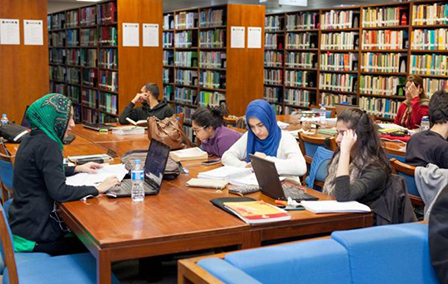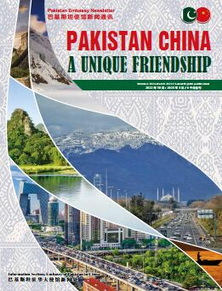

Pakistan Study Centers

Confucius Institute in Pakistan

Advisory for Students

Embassy College

Embassy of Pakistan Newsletter
News & Events
Honorable Chief Justice of Pakistan Addresses East China University Shanghai
May 28,2018
Addressing the faculty members and students at East China University Shanghai, the Hon’ble Chief Justice of Pakistan Mr. Justice Mian Saqib Nisar said, “ my visit to China is an attempt to further strengthen the cordial relations between Pakistan and Chinese citizens and their government by sharing experiences and capabilities in different walks of life especially in the justice sector. During my visit to the People’s Republic of China I have tried to evaluate the potential venues of judicial cooperation between our two countries with the very specific purpose of dealing with any likely legal challenges arising out of the Pak-China economic and commercial ties. I believe that the most important element for putting foreign investors at ease in Pakistan is to ensure a strict adherence to the ‘Rule of Law’. If foreign investors in Pakistan, not only from China but elsewhere in the world, can be assured that any disputes arising out of trade and commercial contracts will be dealt with in a quick and just manner, without endless procedural hurdles and frustrating delays then it will make Pakistan a more attractive destination for FDI. The superior judiciary in Pakistan is very conscious of its role in this regard. Therefore, the NJPMC ( National Judicial Policy Making Committee) has issued directions to civil courts not to issue ex-parte stay orders in respect of CPEC related projects. This initiative will improve the confidence level of foreign investors on Pakistan’s judicial system and will give a sense of protection, comfort and peace of mind whilst investing in Pakistan. Moreover, with respect to CPEC investment, there is a requirement of uniformity in laws, processes and mechanisms and there is a need of a forum like IFC DUBAI to look after foreign direct investment and that special courts be designated for hearing CPEC related disputes. This requires further negotiation at State to State level and if necessary on the judicial level too. We believe that the judiciaries of the region, especially with regard to CPEC Pak-China, need to work closely for developing mechanisms such as smart courts and information centers so that both the countries can progress hand in hand. The sharing of legal ideas and the use of information technology by our two countries will be materially helpful for the judicial systems of both the countries.”
Giving them an overview of the Constitution of Pakistan, his lordship said, “the Constitution enjoins upon the State functionaries a duty to work within limits prescribed in the constitution. The superior courts in Pakistan provide checks and balances to the executive power of the State by means of judicial review of executive actions. It is settled law in Pakistan that the discretion and powers vested with the State Functionaries are not unfettered and are to be exercised judicially and not arbitrarily or whimsically and should be based on sound principles of justice, equity, fairness and in accordance with the spirit of the provisions in which such powers are given. It is important that our trading partners should know that if and when any dispute arises with respect to any commercial transactions/dealings it will be dealt with fairly by the courts in Pakistan and even where the other party is the Government of Pakistan the Pakistani courts will hold their actions to the highest standards possible. The judiciary in Pakistan is truly independent and we mete out judgments without fear or favour.” Commenting on the international perspective, of a vigilant role of the judiciary, his lordship said, “where there are violations of the constitution and statutes, arbitrary and capricious acts or omissions, malfunctioning, corruption, nepotism, failure to perform etc the judiciary is obliged to play its part for the sake of the polity. Poor governance invites an assertive judiciary to secure the fundamental rights of the poor and underprivileged class of citizens who may not otherwise be able to have access to justice. As States develop and deliver a better quality of life to their citizens and ensure the provision of their fundamental rights to all citizens the role of the judiciary becomes more circumscribed, to that of interpreter of laws and adjudicator of disputes”.
Talking on judiciary of Pakistan, he explained, “being torch bearer of the rule of law in Pakistan, the superior judiciary in Pakistan is playing a vigilant role for fair dispensation of justice. It has proven itself as an ultimate protector of fundamental rights of the citizens of Pakistan. The Supreme Court of Pakistan requires the executive to accomplish their duties with the greatest capacity and honesty and faithfully in accordance with the constitution, law and rules of assembly, to uphold the ‘sovereignty, integrity, solidarity, well-being and prosperity of Pakistan’ and preserve it against any likely threat. The Supreme Court of Pakistan ensures that other organs of the State remain vigilant in their roles and that all organs of State work together for national sovereignty and security, and integrity, fundamental rights and welfare of the citizens of Pakistan. The Supreme Court of Pakistan has proven itself as the ultimate custodian
of the fundamental rights of the citizens of Pakistan, especially by exercising its Suo Motu jurisdiction for matters involving Public Interest Litigation (PIL). PIL serves the purpose of enforcement of constitutional rights and rule of law, hence, it is required to be developed more in the present circumstances. It is a beneficial and effective tool not only for the dispensation of justice but also for easy access to justice for the poor and marginalized fraction of Pakistani society. The Supreme Court of Pakistan has succeeded in enhancing its credibility and earned the trust of the people by providing speedy justice to deprived classes by exercising its authority with respect to Public Interest Litigation. The Supreme Court of Pakistan has presently taken Suo Motu notice of matters involving legal and medical education and various environmental issues such as depletion of scarce water resources by the cement industry, the conditions
pertaining in government hospitals. These issues involving education, healthcare facilities and the environment have a direct bearing on the quality of life of the people of Pakistan.”
At the end, his lordship extended thanks to East China University and reiterated the commitment to work in collaboration with all neighboring States to strengthen the rule of law in the region and to build a strong foundation for a modern and progressive Pakistan as envisaged by Constitution of Islamic Republic of Pakistan.


.jpg)
.jpg)
.jpg)
.jpg)
.jpg)
.jpg)
.jpg)







